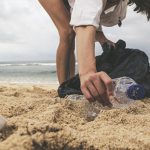Some good news for a change. Two high profile marketing campaigns, for two very different destinations, show the time is increasingly right for stories about sustainability to inspire.
For a long time, one of the great challenges for travel businesses and destinations committed to operating sustainably has been communicating their efforts in ways that resonate with tourists.
Many ways have been tried, all have more or less failed. Some focus too much on technical detail that while important to the business, does not connect with tourists’ travel plans – for example talking about grey water recycling, or bombarding people with numbers and certifications and acronyms. This just reinforces the association in people’s minds that sustainability = boring. And no one searches for a ‘boring holiday’.
Others exaggerate the impact of their initiatives (so called ‘greenwashing’) so you will see towel reuse cards in hotel bathrooms claiming ‘save the planet – use your towel more than once’. This weakens trust, and makes us ignore their claims.
Thirdly, and partly as a reaction to the first two approaches, comes ‘greenhushing’, where people stop talking about their efforts to be sustainable altogether, and focus instead on the experiences people can expect. It’s right to focus on the quality of the tourists’ experience, but doing this without seeking to connect it to your sustainability removes any differentiation from those businesses not making any effort. And it doesn’t help the necessary shift of getting people to associate a more sustainable holiday with a better experience.
If tourists don’t connect the quality of the food with decisions made about its provenance; or the abundance of wildlife with commitments made to its conservation; or the friendliness of the staff with the policies ensuring their wellbeing and empowerment, then it will remain a challenge to persuade people to book sustainable holiday experiences.
Yet it is perfectly possible to make this connection. Just about everyone expects an egg from a free range chicken to taste better than one from a battery farmed one. We associate the quality of our experience with the ethical choices made by the producer.
Which brings me to the two campaigns mentioned in the headline. Last year advertising agency Host/Havas Sydney worked on a pro bono campaign to help the island of Palau promote a more sustainable form of tourism. Thanks to the campaign – the Palau Pledge – any tourist landing at the island now has their passport stamped with the text of a pledge to help the island protect its natural heritage. Tourists then sign that pledge in order to be granted a visa, committing themselves to act responsibly. An inflight film tells arriving passengers about the pledge, as do supporting posters and signs around the island and the airport.
The campaign has won more global advertising and marketing awards than any other in the last year, including three Grand Prix at Cannes Lions and the Black Pencil at D&AD. And it has done all this by explicitly making the connections between a shared commitment to sustainability, a beautiful welcoming destination, and enjoying wonderful experiences.
Likewise, Finland is currently getting lots of coverage in the international media for its Rent a Finn initiative, which invites people from around the world to experience first-hand how to live in harmony with nature – like a Finn. To enable this, Visit Finland has signed up eight Finns to act as ‘happiness guides’ and to share their understanding with tourists. The campaign explicitly connects the fact Finland has been voted the happiest country in the world for the second year running with its people’s deep connection to and respect for nature.
These two stories are getting the most coverage, but there are several other new initiatives that also embody aspects of this much needed, and optimistic trend.
- The Faroe Islands new Join the Preservolution campaign presents the islands’ new tourism strategy as a “a solution with preservation and evolution at its core”.
- Visit Flanders’ Travel to Tomorrow initiative invites everyone – local people, international experts, foreign visitors – to help transform tourism, not just in the region, but across the whole industry. They make clear that this cannot be a top down process (“transformation cannot be managed by the government, at most it can be facilitated”. Rather, they say: “We need you. Your love for the place where you live or work. Your appetite for travelling. Your hospitality.”
- The Italian city of Bologna has launched the Bella Mossa card, which rewards locals and tourists for making sustainable transport choices with discounts and offers such as free ice cream and beer at supporting local establishments. It’s part of a much bigger connective vision that the city is embarking upon (written about in this fascinating article by the founder of Transition Towns Rob Hopkins), which destinations struggling to engage their citizens in the challenges of overtourism could learn a lot from. With initiatives such as the ‘Civic Imagination Office’ Bologna is reinventing the way decisions are made for the city’s development. It is trying to be as collaborative as possible, so that for example, every month there are around “10 public meetings to share decisions about public spaces, about libraries, about pollution, about mobility, about welfare…”
Of course, Bologna’s efforts are around much more than tourism. But in the end, all of this is about being part of something bigger. Yes tourism has to get its own house in order, address its own climate emissions, look after its workforces, protect the destinations it relies on. But ‘solving’ overtourism is about much more than managing numbers of tourists. It’s about asking your residents what sort of place they want to live in. And then supporting them to imagine and realise the stories that make it come true. They decide if they want to be Palau or Flanders or Finland.
This way tourism doesn’t just grow. It grows up, and evolves into what I see as its greatest potential role – one of giving us stories to live by. These stories can be more transformational than the stories we read or watch, because they are ones we get the chance to play with and to live in, if only for a few hours, days or weeks at a time. Tourism gives us the chance to step away from our daily realities. It gives us the chance to experiment and experience alternative, sustainable, hopefully better, ways of living.
Of course, it may be that it is too late to save much of the world that we once took for granted. It may be that we need to learn how to deal with ever-growing waves of eco grief, and learn the tools for deep adaptation to prepare ourselves for a future much worse than the one many of us are lucky enough to enjoy today
But it might still be that with effort, and focus, and the right stories to live by, we can co-create something better. We can realise that the changes we need make to how we live with one another and the world are opportunities more than they are sacrifices. As Charles Eisenstein writes in The More Beautiful World Our Hearts Know Is Possible:
“Amid all the doom-laden exhortations to change our ways, let us remember that we are striving to create a more beautiful world, and not sustain, with growing sacrifice, the current one. We are not just seeking to survive. We are not just facing doom; we are facing a glorious possibility. We are offering people not a world of less, not a world of sacrifice, not a world where you are just going to have to enjoy less and suffer more — no, we are offering a world of more beauty, more joy, more connection, more love, more fulfillment, more exuberance, more leisure, more music, more dancing, and more celebration. The most inspiring glimpses you’ve ever had about what human life can be — that is what we are offering.”
The categories for the WTM World Responsible Tourism Awards are:
- Best for Wildlife & Nature Conservation
- Best for Reducing Carbon & Other Greenhouse Gases
- Best for Transparent Reporting
- Best for Reducing Plastic Waste
- Best for Coping with Success, dealing with Overtourism
- Best for Benefiting Local People
WANT TO READ MORE ON THESE TOPICS?
READ: Using tourism to give people the benefits of time in nature
READ: The destination with solutions to overtourism, climate change and wellbeing







